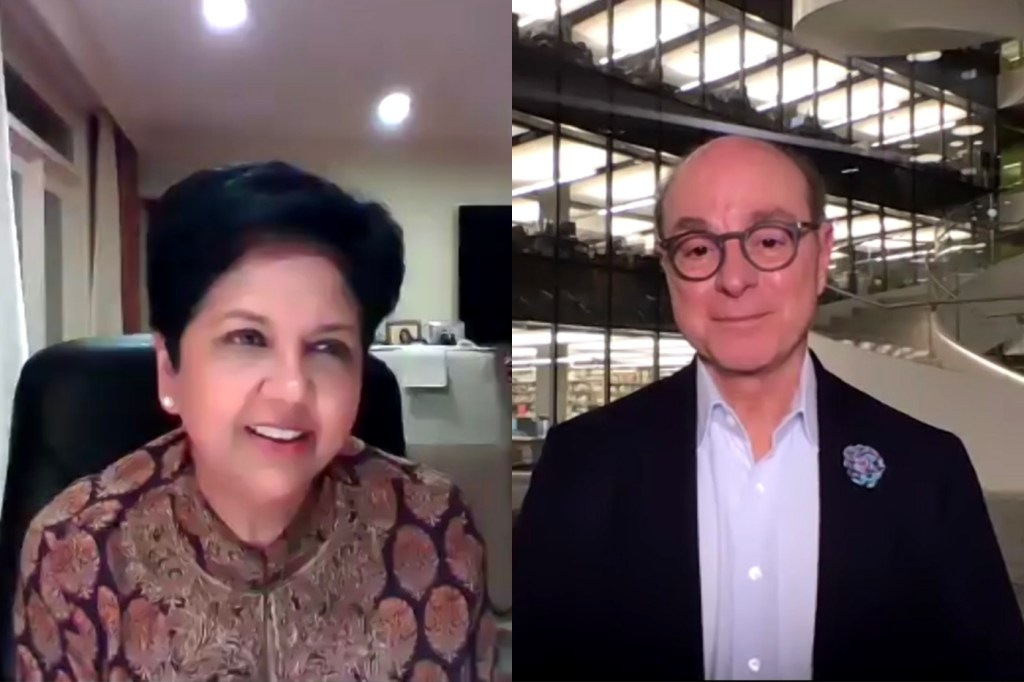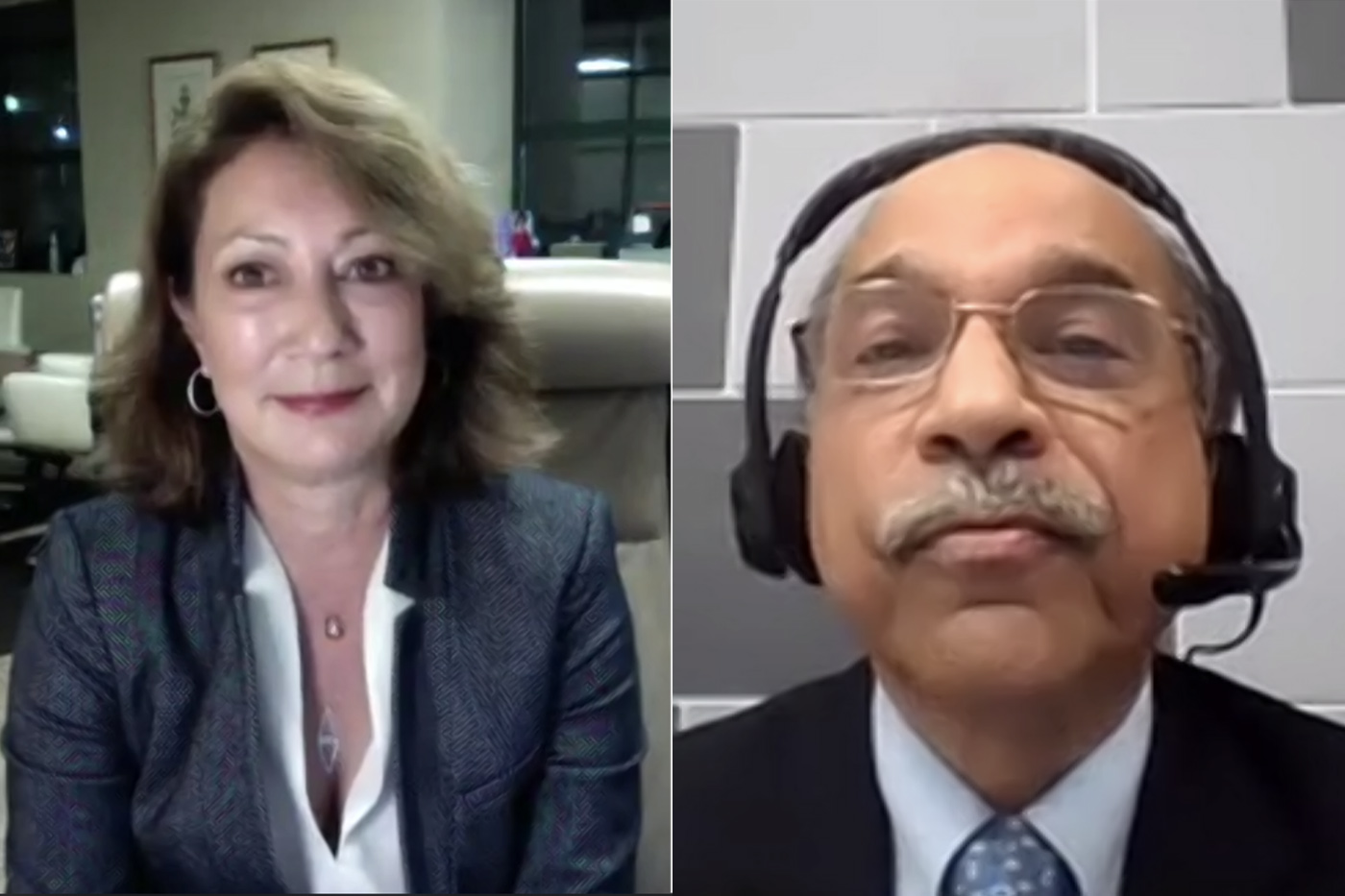If you like Quaker granola bars, Ruffles potato chips, or Lipton tea, chances are you know the work of Indra Nooyi

Pepsi will likely have the same familiar taste no matter where in the world it’s enjoyed. But when it comes to other consumer items like potato chips, it’s important to focus on local tastes to get it just right, said Indra Nooyi, who once ran the snack and beverage giant PepsiCo, home to dozens of familiar household brands.
“If you took a Lay’s potato chip, it would be a basic potato chip. It’s the same everywhere in the world, but the flavoring is different for every country because local tastes are very different. So if you really want to be a global company, you’ve got to have global scale and a very local attitude,” she said.
When Nooyi traveled the world looking to expand PepsiCo into different countries, she focused on tailoring products to specific markets. Similarly, she rarely used international celebrities for targeted marketing campaigns, preferring instead to use country-specific stars to boost sales.

Screenshot by Northeastern University
“When I got off a plane in China, I became Chinese. When I got off the plane in Thailand, I became Thai. In every country where I got off the plane, I became a citizen of that country,” the Indian-born Nooyi said as she fielded questions from Joseph E. Aoun, president of Northeastern, in a livestream organized by the university’s Women Who Empower diversity and entrepreneurship initiative.
He touched on a number of topics, including lifelong learning, diversity in organizational ranks, and the ebbs and flows in Nooyi’s professional career.
Nooyi often made the lists of the most powerful women in corporate America when she was CEO of the New York-based PepsiCo from 2006 until her retirement in 2018. She still reflexively uses “we” when talking about the conglomerate. Today she’s a member of the board of directors at Amazon, raising the number of women on its board to 45 percent—high for the tech industry.
Nooyi continues to advocate for more women in leadership roles in the corporate suite. “When I came into the workplace, I was viewed as a novelty,” she said.
That sentiment is slowly fading as people like Mary Barra (General Motors), Carol Tome (United Parcel Service), and Phebe Novakovic (General Dynamics), assume the corner office. But the “sisterhood of women” must continue to help one another because they are now viewed as competition, and have to work even harder than men to be viewed as equals, Nooyi said.
“Women have to develop a thicker skin. They have to show that they’re incredibly competent.”
And she advised, “don’t take any crap from anybody,” but acknowledged that this can be easier said than done when most authority figures are male, especially in tech companies.
“Silicon Valley needs to really get its act together when it comes to hiring, funding, and investing in women.”
Learning and education were paramount in Nooyi’s upbringing in Madras, now known as Chennai, but she also played cricket, climbed trees, and strummed the guitar. She was educated in Indian schools before coming to the United States for a Master of Business Administration.
Even in retirement, she keeps pace with the ever-changing world around her.
“Lifelong learning is something that has to be part of everybody’s vernacular. If you don’t engage in constantly updating skills, you’re going to become a relic of the past very, very soon.”
Nooyi says that working professionals, regardless of what rung they occupy on the corporate ladder, also need to maintain a regular cycle of self-improvement. That comes by continuously updating skills to land that next promotion, rather than solely relying on degrees earned in the past.
“The thing that we have to explain to people is that just because you have an MBA, you don’t have a rocket ship to the top. You have to earn every job. Promotion is not a birthright.”
Innovation in a company as large as PepsiCo relies on employees taking the initiative themselves to generate an idea, collaborate with others on it, work through the kinks and put in the long hours to make it a reality, Nooyi said.
“Companies are pyramids. The army is a pyramid. Government is a pyramid. When you rise up in the pyramid, a lot of people get dropped off. You can choose to stay some level down below, but if you want to go up to the very top, you’ve got to have a special sauce.”
The next guest speaker in the Women Who Empower series is Nicki Washington, professor of the practice of computer science at Duke University and author of Unapologetically Dope: Lessons for Black Women and Girls on Surviving and Thriving in the Tech Field. That takes place on Monday, Oct. 26.
Three days later, Reema Juffali, a Northeastern graduate, talks about her career as Saudi Arabia’s first female race car driver.
For media inquiries, please contact media@northeastern.edu.





